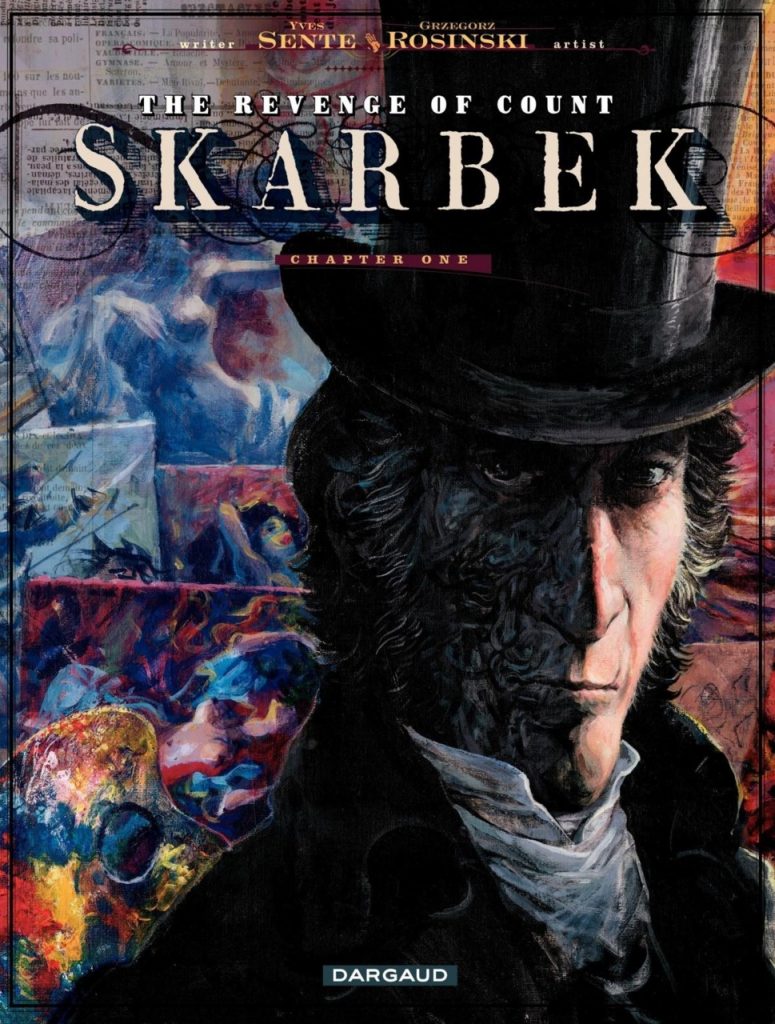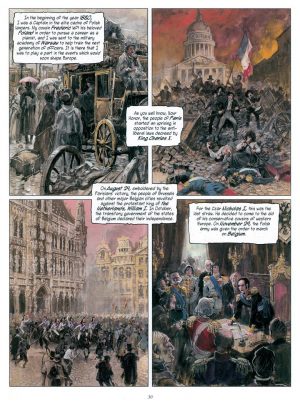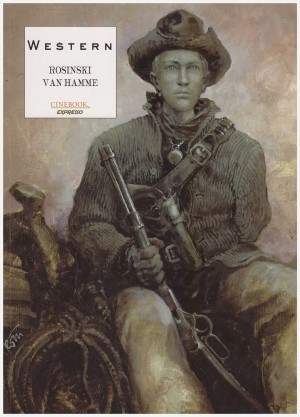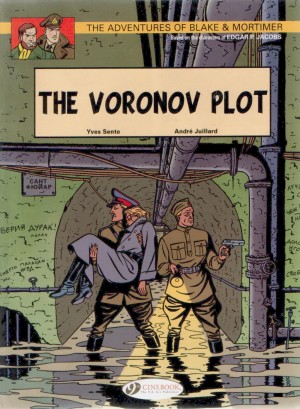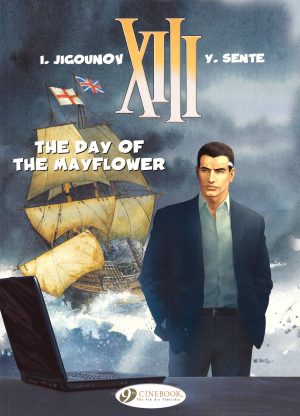Review by Frank Plowright
In 1843 the Polish Count Mieszko Skarbek is introduced around Paris, showing great interest in the widely admired paintings of Louis Paulus, presumed to have died over ten years previously. Almost all his paintings are now owned by the respected art dealer Daniel Northbrook. Count Skarbek claims to be Paulus, now unrecognisable to former acquaintances, his face heavily scarred and his voice changed after his throat was burned. As the title promises, he’s returned to Paris to have his revenge on people for crimes we discover as Two Golden Hands rolls out.
Grzegorz Rosinski is one of the great talents of European comics, yet his painted pages are barely recognisable as the work of the same person whose equally excellent line artwork regularly graces the Thorgal series. In panel after glorious panel he presents 19th century Paris in an opulent style, using vivid colour and providing rich detail. His slightly caricatured faces are a little at odds with the style, but there’s no mistaking one for another as every one of them is gloriously distinct, and there’s no caricature involved in the alluring beauty of artist’s model Magdalena. She’s an erotic study seen draping herself over furniture to recreate the poses of paintings in which she features.
When he wrote The Revenge of Count Skarbek, Yves Sente was a respected editor who’d just branched out into writing, with two well plotted Blake and Mortimer books to his name, but this was his first work completely of his own devising. Sente’s plot is a clever pastiche of popular 19th century writers like Victor Hugo and Alexandre Dumas, whom he indirectly mentions, featuring fantastic twists, melodrama, and hefty doses of criminal activity. The present day narrative pauses for dips back into the past, including Paulus/Skarbek’s family history and the events that led to the court proceedings framing their telling.
The pastiched formula supplies an extremely unusual narrative style for comics, and at times the pronounced improbabilities require a greater than usual suspension of disbelief, but Sente is aware of this, and ensures his plot is a real page-turner. His final page delivers another masterful revelation, and by the end of Two Golden Hands we’ve reached the halfway point of Skarbek’s story. The conclusion awaits in A Heart of Bronze.
